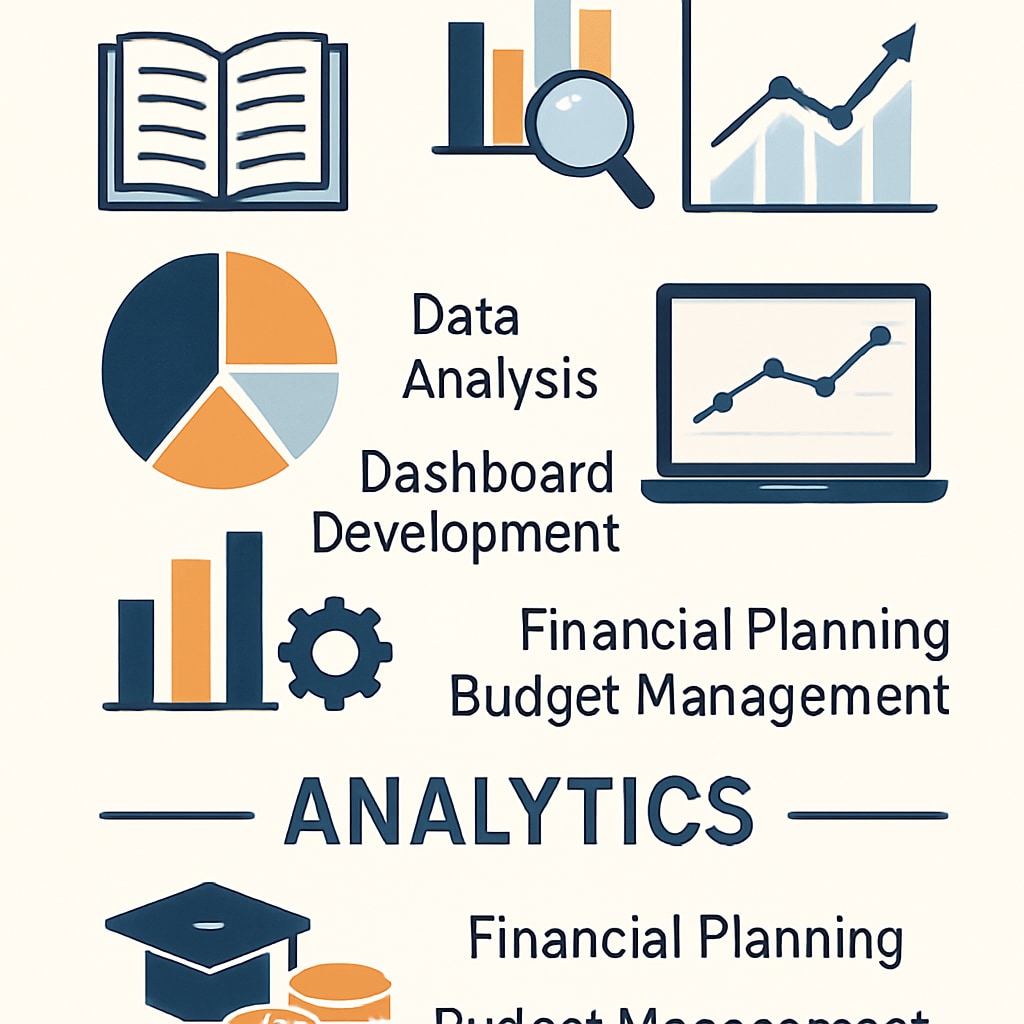Combining business analytics with a minor in finance opens exciting career opportunities in the K12 education sector. This unique combination equips professionals with valuable skills to drive data-informed decisions, optimize financial strategies, and innovate within the education landscape. Moreover, this dual expertise offers high-paying roles in markets like Singapore, the USA, and Australia, while also supporting a healthy work-life balance. By examining its applications in education management, edtech, and global education markets, this article highlights the transformative potential of this dynamic skill set.
The Unique Synergy of Business Analytics and Finance in K12 Education
The intersection of business analytics and finance provides a powerful framework for addressing challenges in the K12 education system. On the one hand, business analytics involves leveraging data to identify trends, improve decision-making, and optimize operations. On the other, finance focuses on the strategic allocation of resources to achieve long-term goals. Together, these fields can revolutionize educational institutions by enhancing operational efficiency, improving budgeting, and enabling data-driven innovation.
For example, school administrators can use predictive analytics to forecast student enrollment trends, while finance models help allocate budgets to support these projections. Similarly, edtech companies can utilize analytics to measure the effectiveness of digital learning tools while ensuring sustainable financial growth. This synergy is particularly valuable in regions like Singapore, where education systems are data-driven and highly competitive.

Applications in Education Management and EdTech
Professionals with dual expertise in business analytics and finance are increasingly sought after in education management and educational technology (edtech). The following key areas highlight their impact:
- Operational Efficiency: Schools and districts can use data analytics to streamline operations, such as optimizing bus routes or identifying underperforming programs. Financial insights ensure these initiatives are cost-effective.
- Strategic Budgeting: By combining enrollment data with financial forecasts, administrators can make informed decisions about staffing, infrastructure, and curriculum investments.
- EdTech Product Development: Analytics helps assess how students interact with educational tools, while financial planning ensures these products remain scalable and profitable.
- Performance Measurement: Data analytics can evaluate the outcomes of various teaching methods, and financial models can measure the return on investment (ROI) of implementing new initiatives.
In addition, global markets like the USA and Australia are seeing a surge in edtech startups, creating opportunities for professionals skilled in these areas. According to Britannica, the global edtech market is expected to grow significantly, driven by advancements in AI and data-driven tools. This environment is ideal for those with a dual background in business analytics and finance.

Strategies for Achieving High Pay and Work-Life Balance
One of the key attractions of combining business analytics and finance is the ability to secure high-paying roles while maintaining work-life balance. To achieve this, consider the following strategies:
- Focus on High-Demand Regions: Markets like Singapore, the USA, and Australia offer lucrative roles in education management and edtech. For example, data analysts in Singapore’s education sector earn competitive salaries due to the country’s emphasis on data-driven policymaking.
- Leverage Certifications: Obtaining certifications in tools like Tableau, Power BI, or financial modeling can increase your marketability and salary potential.
- Explore Remote Opportunities: Many edtech companies offer flexible work arrangements, allowing professionals to balance career goals with personal commitments.
- Network in the Education Sector: Joining associations like the International Society for Technology in Education (ISTE) can provide valuable connections and insights into emerging trends.
Moreover, regions like Australia emphasize work-life balance through policies such as mandatory vacation days and flexible work arrangements. These factors make the K12 education sector particularly appealing for those seeking both professional success and personal well-being.
As noted by Wikipedia, the rise of data analysis in various industries highlights the importance of applying these skills in education. By aligning career goals with market needs, professionals can unlock rewarding opportunities in this sector.
Conclusion: A Promising Path Ahead
In summary, the combination of business analytics and finance offers a golden career opportunity in the K12 education sector. Whether through improving education management, driving innovation in edtech, or thriving in global markets, this skill set is highly versatile and in demand. With the right strategies, professionals can achieve high-paying roles while maintaining a fulfilling work-life balance.
As education systems worldwide continue to evolve, the need for data-driven and financially sound leadership will only grow. By embracing this dual expertise, you can position yourself at the forefront of this exciting transformation.


